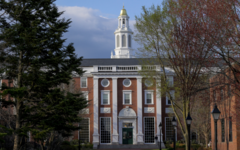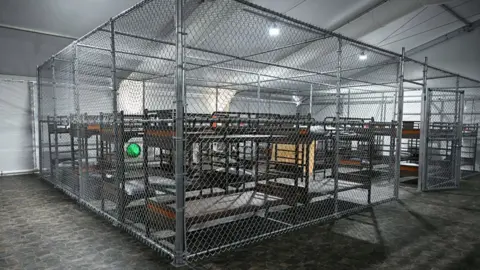Harvard University has officially filed a federal lawsuit against the Trump administration, challenging a proposed freeze of over $2.2 billion in federal funding essential for numerous critical research initiatives. The lawsuit, lodged on Monday, arises from a recent dispute following the university’s refusal to comply with a set of demands from the administration aimed at limiting diversity programs and addressing issues related to anti-Semitism within the institution.
The situation intensified last week when President Donald Trump announced the funding freeze, which targets not only Harvard but other prominent Ivy League universities. Harvard’s president, Alan M. Garber, commented on the significant consequences of this governmental intervention, stating, “The consequences of the government's overreach will be severe and long-lasting.” He underlined the potential impact on crucial research areas, including pediatric cancer, Alzheimer’s, and Parkinson’s disease, warning that the funding freeze would severely disrupt ongoing research partnerships.
In response, the White House issued a statement criticizing the university’s financial practices, with spokesman Harrison Fields asserting that taxpayer dollars were privileges that should only be granted under specific conditions. He called for accountability, saying the funding of institutions like Harvard should not be used to inflate the incomes of their bureaucrats.
The lawsuit alleges that the administration is using the funding freeze as leverage to interfere with Harvard’s academic independence and decision-making. Alongside the funding issues, the administration has threatened to obstruct the university's ability to enroll international students, which could have further implications for its diversity and global engagement.
Harvard's efforts to combat anti-Semitism, led by task forces established by Garber, have been recognized, though ongoing tensions remain regarding the university's response to campus climate issues. Notably, Harvard has rebuffed the administration’s demands for oversight concerning curriculum audits, admission practices, and faculty hiring, maintaining that these conditions violate its independence and constitutional rights.
As the legal battle unfolds, Harvard is not alone; other Ivy League schools face similar funding cuts and demands from the administration. The situation sparks a broader dialogue about the relationship between federal funding and academic freedom, with other institutions like Cornell and Brown also encountering significant financial pressures.
In this contentious climate, Harvard, supported by notable alumni like former President Barack Obama, stands firm against what it describes as governmental overreach, asserting that it will protect its institutional autonomy against external pressures. The outcome of this lawsuit could have far-reaching effects not just for Harvard, but for academic institutions nationwide.
The situation intensified last week when President Donald Trump announced the funding freeze, which targets not only Harvard but other prominent Ivy League universities. Harvard’s president, Alan M. Garber, commented on the significant consequences of this governmental intervention, stating, “The consequences of the government's overreach will be severe and long-lasting.” He underlined the potential impact on crucial research areas, including pediatric cancer, Alzheimer’s, and Parkinson’s disease, warning that the funding freeze would severely disrupt ongoing research partnerships.
In response, the White House issued a statement criticizing the university’s financial practices, with spokesman Harrison Fields asserting that taxpayer dollars were privileges that should only be granted under specific conditions. He called for accountability, saying the funding of institutions like Harvard should not be used to inflate the incomes of their bureaucrats.
The lawsuit alleges that the administration is using the funding freeze as leverage to interfere with Harvard’s academic independence and decision-making. Alongside the funding issues, the administration has threatened to obstruct the university's ability to enroll international students, which could have further implications for its diversity and global engagement.
Harvard's efforts to combat anti-Semitism, led by task forces established by Garber, have been recognized, though ongoing tensions remain regarding the university's response to campus climate issues. Notably, Harvard has rebuffed the administration’s demands for oversight concerning curriculum audits, admission practices, and faculty hiring, maintaining that these conditions violate its independence and constitutional rights.
As the legal battle unfolds, Harvard is not alone; other Ivy League schools face similar funding cuts and demands from the administration. The situation sparks a broader dialogue about the relationship between federal funding and academic freedom, with other institutions like Cornell and Brown also encountering significant financial pressures.
In this contentious climate, Harvard, supported by notable alumni like former President Barack Obama, stands firm against what it describes as governmental overreach, asserting that it will protect its institutional autonomy against external pressures. The outcome of this lawsuit could have far-reaching effects not just for Harvard, but for academic institutions nationwide.





















